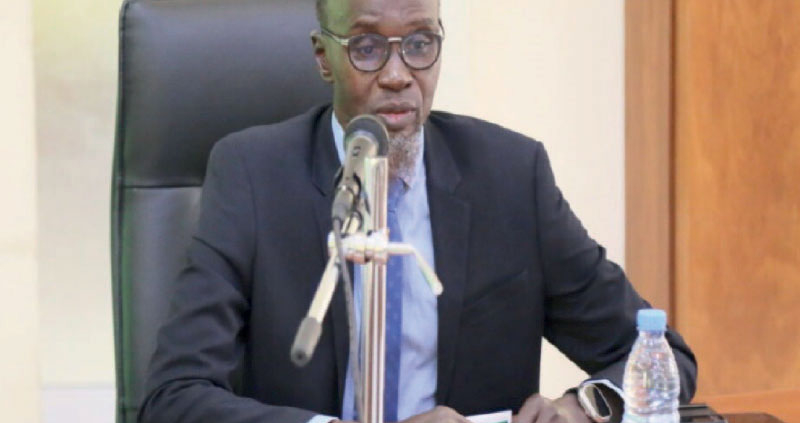Senegal: Opportunities for women
As in many sectors, women are left out in the cold because the system is more flexible towards men. Public procurement is no exception. It is virtually a male monopoly. And yet, in Senegal, major innovations have been introduced into the legal and institutional arsenal of public procurement (MP and PPP) that are favourable to women, guaranteeing them better access to public procurement by giving them the opportunity to bid for and win contracts. In an article published ahead of the celebration of International Women’s Rights Day on 08 March under the theme «Investing in women: picking up the pace», the Director General of Arcop/Senegal, Mr Saer Niang, discusses these innovations.
It’s a fact of life: the world of work is becoming increasingly feminised! They are persevering and making their mark everywhere. In every sector of public life, women stand side by side with men
and stand out for their passion for excellence. Their strong presence in modern production sectors owes much to their fighting spirit. There is still a long way to go before women are truly financially independent and the thorny battle for gender equality is over.
It is not possible to develop by depriving half of humanity of its rights; we cannot achieve the objectives set if half the population is ignored.
As a result, public policies can no longer ignore them.
The Plan Senegal Emergent (PSE), «a reference framework for policies (…) aimed at leading Senegal towards emergence by 2035», gives them a prominent place in all its priorities, by integrating them into the development process through inclusive, equitable or egalitarian participation.
The SNEEG (National Strategy for Gender Equity and Equality) is pulling out all the stops to achieve gender equality in a number of areas and sectors by 2026, including public procurement.
Today, Decree no. 2022-2295 of 28 December 2022 on the amended Public Procurement Code heralds a new era! The reform of the legal and regulatory framework enshrines positive discrimination in favour of one category of players: women businesses.
What about the concepts of «equal access to public contracts» and «equal treatment of candidates»? These two principles are enshrined in all public procurement regulations to reflect transparency and fairness, and to inspire confidence among stakeholders.
The first milestones in the process of increasing the number of women in public procurement have now been laid, which until now has been almost entirely dominated by men or by companies run by men.
It’s worth noting that the public authorities are increasingly committed to the idea of a Small Business Act for public procurement!
Point 5 of the Sustainable Development Goals (SDGs) encourages the introduction of policies dedicated to combating inequalities, which still exist and require positive measures in favour of women. The aim of this policy is to make public procurement a tool for improving conditions for women.
As if to reinforce this vision of ARCOP, which very quickly grasped the great inventiveness of women and their capacity for adaptation and resilience, the President of the Republic signed Decree no. 2022-2295 of 28 December 2022 on the Public Procurement Code. A fair rebalancing in favour of women, who are always the first to pay a heavy price when perils of any kind arise.
Article 6 of the document requires contracting authorities to devote at least five per cent (5%) of the total value of their annual contracts to players in the social economy and national SMEs. This measure applies to public authorities with an annual budget in excess of an amount defined by order of the Minister of Finance. Within this rate, two per cent (2%) is earmarked for the public sector.
Already in 2021, as part of a partnership signed with UNFEMMES, ARMP has helped more than 500 women to prepare, bid for and apply for all types of public contracts through training. This political will is backed by the realization that public procurement is a powerful lever for economic and social development and a means of combating poverty, which affects more women than men.
Secondly, the amendments to decree no. 14-43 of 27 October 2022 implementing the law on public private partnership contracts make it possible, within predefined regulatory limits, to give preference to companies with a majority female shareholding or those with more than 50% female staff.
The stakes are high when you consider that public procurement accounted for CFAF 3,000 billion in Senegal, or nearly 17% of GDP in 2017. Women account for 31% of business owners in Senegal
and are already well represented among the beneficiaries of public contracts. Even so, awareness of public contracts is lowest in the sectors where women are most represented: 13.6% for personal
services, 10% for retailers and 9.5% for the hotel sector.
Beyond the achievements, the challenges remain. Their ability to seize the present opportunity will be decisive for the future.
Regular information on available contracts and their determination to submit bids that «comply with the rules imposed on candidates and contract holders by Senegalese law, particularly in the areas of ethics, labour law, social security and environmental protection, while respecting the technical rules specific to the subject of the contract, will make all the difference. Their commitment to responsible public purchasing, formalised by their adherence to the «Transparency and Ethics Charter for Responsible Public Procurement» required by the new regulations, will undoubtedly
make them pioneers in the field of sustainable public purchasing across its three pillars: economic,
social and environmental.
We are firmly convinced that the initiatives of the Market Fund and the Department of Employment augur well for the future of this category of the population in public procurement. Both bodies are involved in the process: one to promote factoring, which consists of buying up the debts of businesses, especially those run by women, and the other through the mechanisms of the State-Employers Agreement, which allows for subsidising costs. Two examples, among others, but as the saying goes:
Rome wasn’t built in a day.
Beyond public procurement, we need to put gender equity and equality at the heart of policies and decisions in all areas and create a favourable environment for female leadership at all levels.
Women must also create change, not just wait for it.
It’s not a question of women asking for their place, they have to take it.





Laisser un commentaire
Rejoindre la discussion?N’hésitez pas à contribuer !